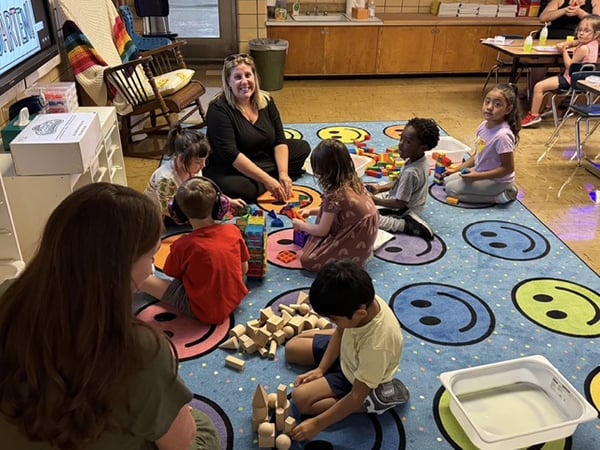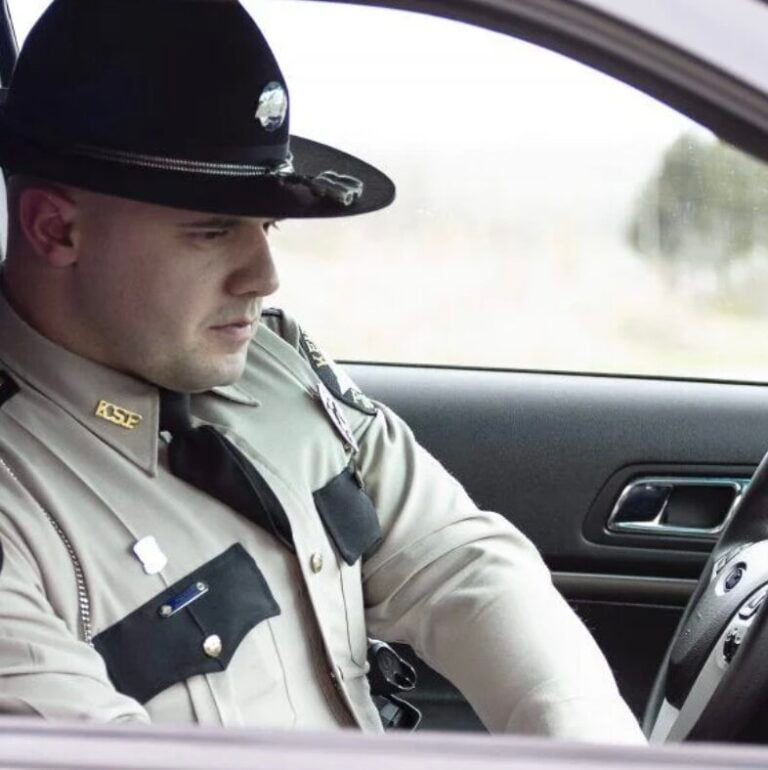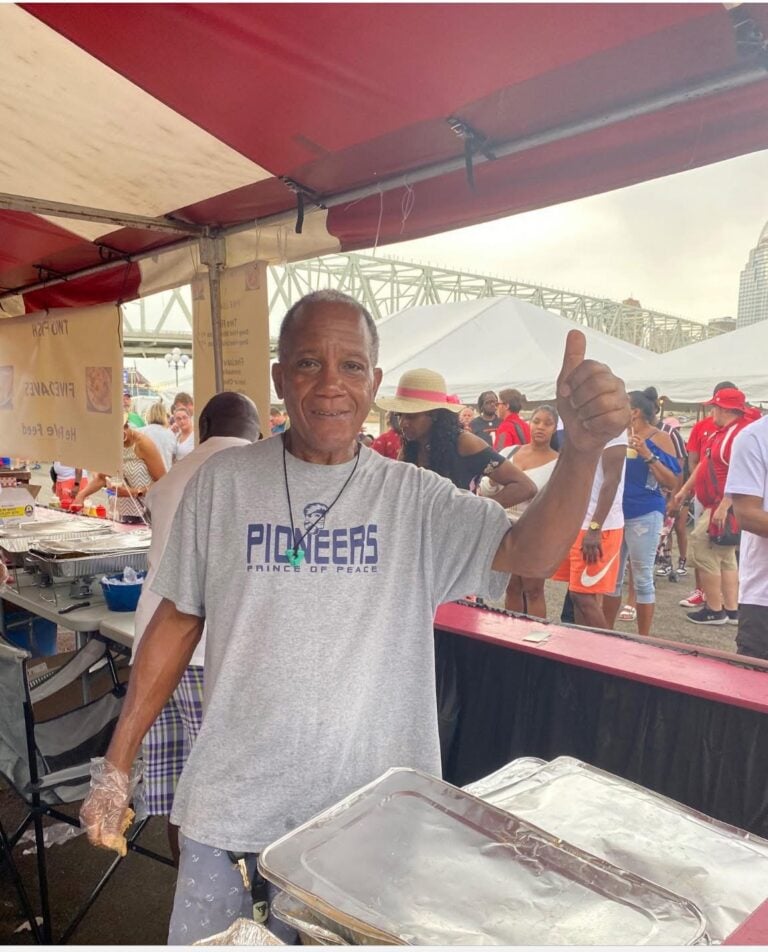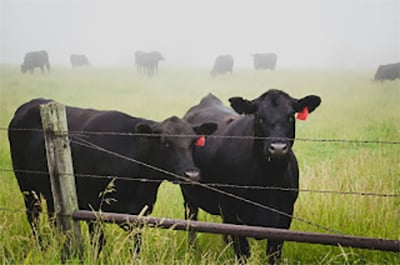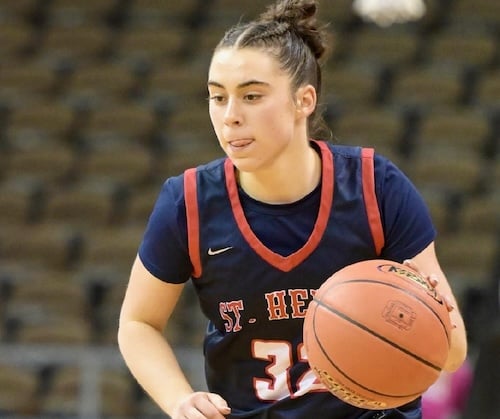By Judy Clabes
NKyTribune editor
Not only do the wheels of justice grind slowly, but when a state law enforcement agency is itself in charge of investigating itself, do they grind at all?
This week is the 10th month anniversary of the death of Gary Bressler, 48, shot down in the driveway of his own home in rural Grant County on the early morning of Nov. 3, 2021. He was unemployed, suffering from depression, dealing with mental health issues — and apparently expendable.
In full view of his wife and three children, begging the police not to fire, Gary Bressler was shot dead — with 7 entrance/exit bullet wounds and one grazing wound — within 2-3 minutes of police arriving on the scene. They were responding to Bressler’s own 911 call. Bressler did not have a gun. He was holding but not brandishing a decorative Samurai sword which was pointed to the ground and was 40-60 feet away from armed officers who were safely behind their vehicle.
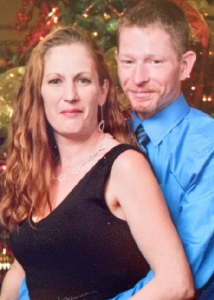
In the aftermath of the shooting, the officers threatened Bressler’s wife with arrest if she didn’t get herself and her three “screaming children” into the house and away from the body.
The officers were not wearing body cams, as is their policy, and there is no cam footage from their car. But there was a local officer on the scene and he may have had video of the shooting. KSP has chosen not to provide that information.
An investigation ensued. And, as is the practice of the Kentucky State Police, the investigation was conducted by — the Kentucky State Police. That, in itself, is seen as problematic for those who have had complaints against the KSP, including wrongful death complaints, such as the Bressler family has.
NKY attorney Paul Hill has filed, on behalf of Gary Bressler’s wife Heather Bressler, a wrongful death lawsuit in the U.S. District Court in Covington against KSP troopers Zachary Lusk and Douglas Holt.
Hill has been awaiting — and asking for — a copy of the CIRT (Critical Incident Response Team) report which has been completed by Sgt. William Howard of the Kentucky State Police. Hill believes that he and his clients are entitled to the information contained in the report. It includes recordings of 911 calls made by his clients, interviews with witnesses including the officers and the Bressler family, and measurements of the distance between the officers and Bressler when he was shot.
“All of that evidence is discoverable and must be produced,” Hill said.
The reason the state of Kentucky representative claims she does not want it released is so as “not to taint the Grand Jury investigation” into the shooting. Grant County Commonwealth Attorney Leigh Ann Roberts will present the case to the Grand Jury.
“I have informed Mr. Hill that my office cannot and will not release this information to him,” she wrote. “The premature release of the information contained in the CIRT report through any other source could only prejudice, hinder, or alter the investigation and/or the outcome of a Grand Jury presentation. Currently, this remains an open investigation.”
The full report has, however, been provided to Samantha Bevins, attorney for the Troopers.
Of course, this begs the question as to why the report would be released to the attorney for the Troopers who could certainly benefit from its knowledge — and “prejudice, hinder, or alter the investigation” of a Grand Jury.
“It is not explainable” that the Troopers have received this report, says Hill in his response to the Troopers’ request to delay the federal proceedings and not provide the CIRT report.
“I don’t know how they can provide the report to the people they are supposed to be investigating,” said Heather Bressler.
Although Hill is resigned to some delay in the federal court proceedings, he says that lawsuit can still move significantly forward beginning with the production of the CIRT report. That report will provide much information the Bressler family is awaiting.
“The Bressler family and Kentucky citizens have a right to transparency as to what happened to Gary Bressler,” Hill said in his court filing.
Hill cites the handling of the shooting of Samuel Dubose by a University of Cincinnati police officer.
“In that case, within 10 days, Prosecutor Joe Deters had provided the public with the lapel video of the shooting and had made a decision to indict the officer. It’s been 10 months for us. The country has learned that transparency rather than secrecy is the best way to deal with tragedies such as this. Why hasn’t Kentucky learned?”

Kentucky State Police officers have shot and killed at least 41 people from 2015 through 2020, according to The Marshall Project. That represents more fatal shootings than any other law enforcement agency in the state. In fact, Kentucky Troopers have killed more people in rural communities than any department nationwide. About a quarter of those killed were not armed with a gun when state police shot them, and a majority were suffering from addiction or mental health problems. The state police investigate their officers’ shootings with no outside oversight.
No Kentucky Trooper was prosecuted for any of the 41 deaths. Kentucky state Troopers do not utilize either lapel or dash cam video to record their encounters.
The Marshall Project, in conjunction with the Kentucky Center for Investigative Reporting and reporter R.L. Dunlop, revealed the results of a long investigation titled, “Shooting First and Asking Questions Later,” about the high rate of fatalities at the hands of KSP. Another, “Where Lots of Police Shootinga Draw Little Scrutiny,” revealed the startling statistics, cited above.
See these NKyTribune stories about the Gary Bressler case:








